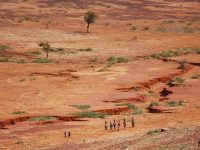
The role assigned to women and men in this system is one among the determinants of the results obtained so far. Actually, it affects both men and women, but in the twenty-first century it is women who express a stronger desire for social change and those who more overtly question their own role in science, concerning mainly three aspects: what science says about women and men (content); the role women and men play in the creation of science (their presence, exclusion, relative power, etc.); and the role that women and men play in the social environment of science (transmission, reception, use, profit, sponsorship, etc.).
«The greatest asset of today’s women is precisely the ability to question a system that has been built in their absence and to which they can provide a great deal of organizational innovation»
In Spain, the last quarter of the twentieth century witnessed the great change in women’s access to the production of knowledge, favoured by the previous decades of incorporation to university education and the general climate of social change and political openness. Many universities and research centres organised seminars to reflect on the content of each discipline and to incorporate women’s perspectives. It became a particularly successful wave of innovation within the field of humanities and social sciences and also in some areas of architecture and medicine, where women are not only agents of knowledge but also, quite often, the subject of study. In engineering and natural sciences, mathematics and physics, the impact of innovation has been slower, and so far it has been directed mainly to historical aspects or to the analysis of the gender composition of different professional departments.
Aside from being completely legitimate, it is very appropriate to wonder what would have come of science had men and women historically played a different role than the one they actually play, or how will it affect their progressive incorporation into the science of the future. The greatest asset of today’s women, beyond their excellent technical preparation, is precisely the ability to question a system that has been built in their absence and to which they can provide a great deal of organizational innovation.
There are still, here and there, both institutions and people trying to keep the access to knowledge for a few. Personally, I feel fortunate to have been able to study or do research during my whole life, and I thank those who took the risk of encouraging me to do so.





